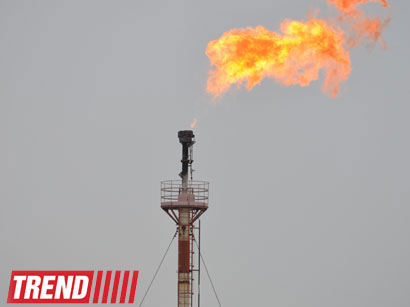Baku, Azerbaijan, Feb.3
By Aygun Badalova - Trend:
Russia's Gazprom announced that it would cut the volume of Turkmen gas purchases from ten to four billion cubic meters in 2015. Gazprom said that the company's own resources are capable of providing not only the needs of the market in any region of the country, but also European consumers, and in the future Asian ones as well.
Gazprom said that the consequences of this joint solution for Turkmenistan will not be negative. On the contrary, Turkmenistan acquires additional gas volumes free for export. The question is only where they will be directed.
Turkmenistan has a huge market - China, which, as it repeatedly stated, is ready to absorb all the free volumes of Turkmen gas. And at this stage, there is a strong likelihood that the Turkmen gas refused by Russia will be supplied namely to that country.
China is the world's third largest consumer of natural gas. Over the past 13 years, consumption of fuel in the country increased by almost seven times and reached 168 billion cubic meters in 2013. By 2020, gas consumption in China will reach 400 billion cubic meters, according to the State Committee for the Reform and Development of China.
Last year, an agreement on the construction of the fourth gas pipeline from Turkmenistan to China was signed, which will make it possible to increase the volume of Turkmen gas to 65 billion cubic meters annually.
The emergence of the free volume of Turkmen gas can be used by Turkmenistan to achieve the goals of diversification of its gas supply, especially to India and Europe.
Today, such pipeline projects as Turkmenistan-Afghanistan-Pakistan-India (TAPI) and the Trans-Caspian gas pipeline still remain only on paper despite their attractiveness and the parties' desire to implement them.
The main factors hindering the implementation of these projects are the security issues for TAPI, the undefined legal status of the Caspian Sea for the Trans-Caspian pipeline, as well as the lack of free volume of gas within the agreement with China.
The elimination of the latest factor at this stage could be an impetus for taking concrete measures on the two mentioned projects. This issue is especially relevant for the EU, which is seeking new alternative suppliers in accordance with its policy of diversification of the gas supply sources.
It is time for the EU, which is one of the parties of the negotiation process on the Trans-Caspian pipeline, to intensify the efforts on connecting Turkmenistan to the largest and long-term project on the supply of the Caspian Sea gas to the European markets.
If the EU needs the Caspian Sea gas (undoubtedly it needs), it should take this gas from other markets.
Edited by CN
---
Aygun Badalova is Trend Agency's staff journalist, follow her on Twitter: @AygunBadalova








